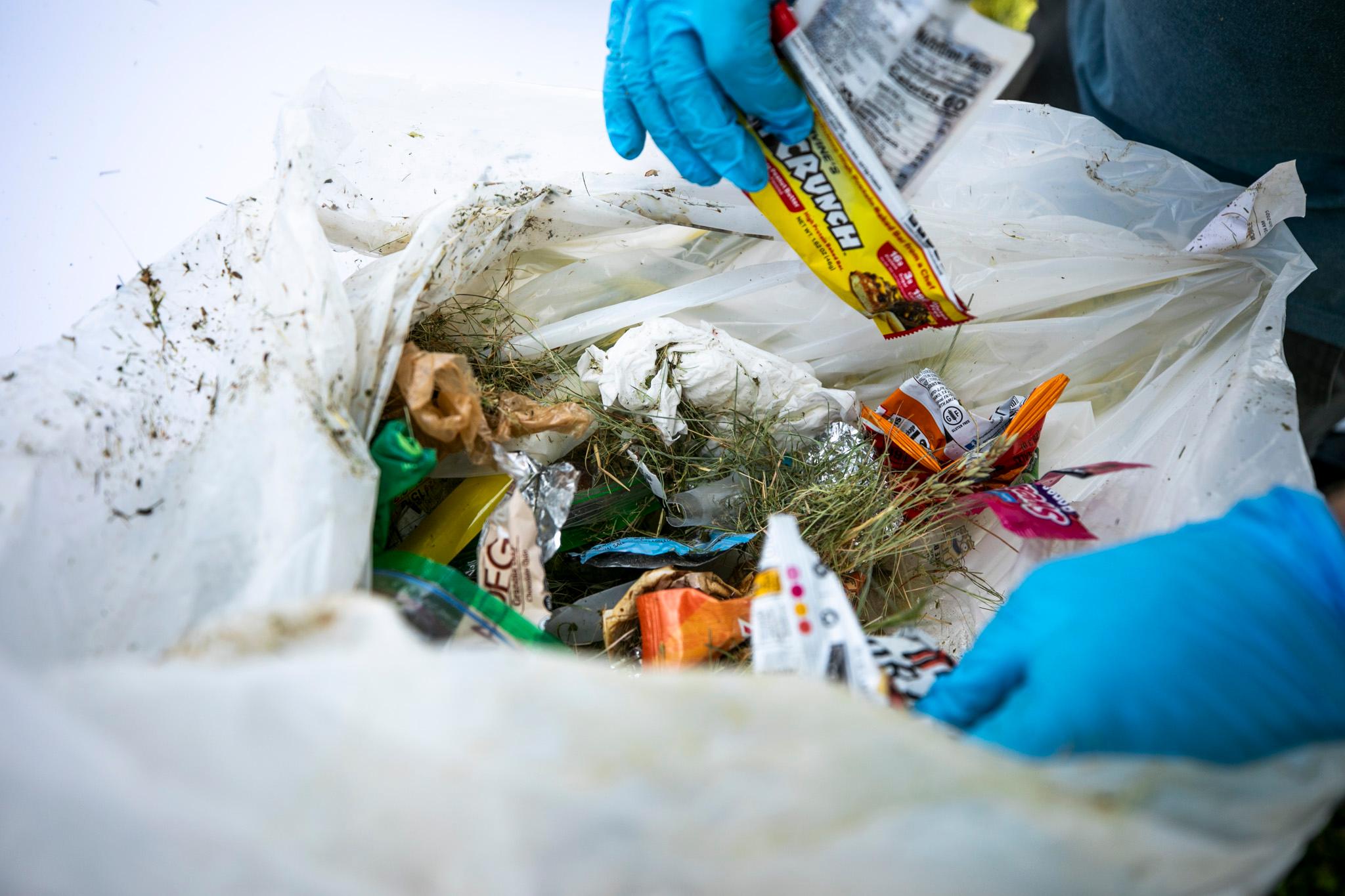It was a beautiful Saturday morning as a summer street fair kicked off at the National Western Center.
Cory Jones, as usual, was rooting around in a garbage can.
Strapping on rubber gloves and reaching into stinking refuse is not explicitly written in his job description. But Jones is the sustainability and safety manager for the sprawling NWC campus, and that means he must get hands-on to ensure its composting system functions properly.
Jones was sorting through coffee cups and wet napkins to address one of the fundamental challenges of the city’s new composting efforts: how to ensure organic material actually makes it into the right bin.
This is easier said than done. People show up with all kinds of stuff — some of it is labeled, some of it isn’t, some “compostable” items aren’t accepted everywhere, cups and lids can’t always be tossed in the same place. So Jones stands there, helping people as they arrive and digging in as they make mistakes.
“It does take time,” he said cheerfully. “It does take a lot. But once you get it down, it's almost second nature.”
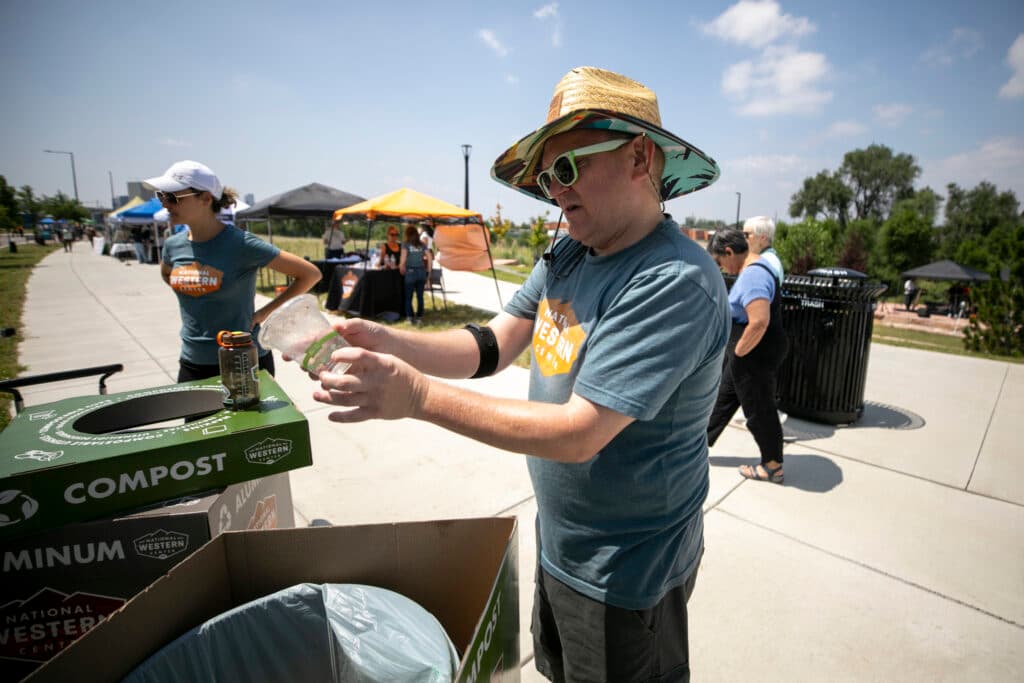
This disposal dance could soon be coming to events and businesses across the city, thanks to a local law that’s been waiting to be activated for years.
Denver City Council will soon consider a plan to initiate Waste No More, a measure approved by 70 percent of voters in 2022 that requires compost services at apartment buildings, businesses, outdoor festivals and construction sites. The city has delayed enforcing the measure until lawmakers approve amendments to its original language.
When the law is implemented, businesses will have to figure out how to create their own compost streams — and that will require work. It’s a reality some business owners and officials say might be too much for small enterprises attempting to survive in an expensive city.
Business representatives and environmentalists have been negotiating for months with Mayor Mike Johnston’s office about what the program’s rules should be — and, crucially, who might be exempted.
Here’s what council members are considering:
Denver has offered green compost bins to homeowners since 2023. Though that program has reached 70,000 customers, it mostly only touches people who live in single-family homes.
Environmental advocates came up with Waste No More as a way to expand that service to the rest of the city.
As of Thursday, the proposal heading to council would require composting for:
- All multi-family buildings, which recently had to start offering recycling under a state law passed in 2022.
- Any nonresidential building that handles food, like restaurants. There are exemptions for operations that generate less than $2 million in annual revenue and have fewer than 25 employees.
- Outdoor events that serve food and expect more than 1,000 daily attendees.
- Construction and demolition projects larger than 500 square feet.
- Renovation and remodel projects larger than 2,500 square feet.
The old version did not include permanent exemptions based on the size or capacity of a given property or enterprise, which were added to the new version.
Right now, Denver sends about 70 percent of our solid waste to landfills, which have finite capacity and emit significant amounts of methane into the atmosphere. Denver aims to flip that ratio, instead sending only 30 percent of solid waste to landfills by 2032.
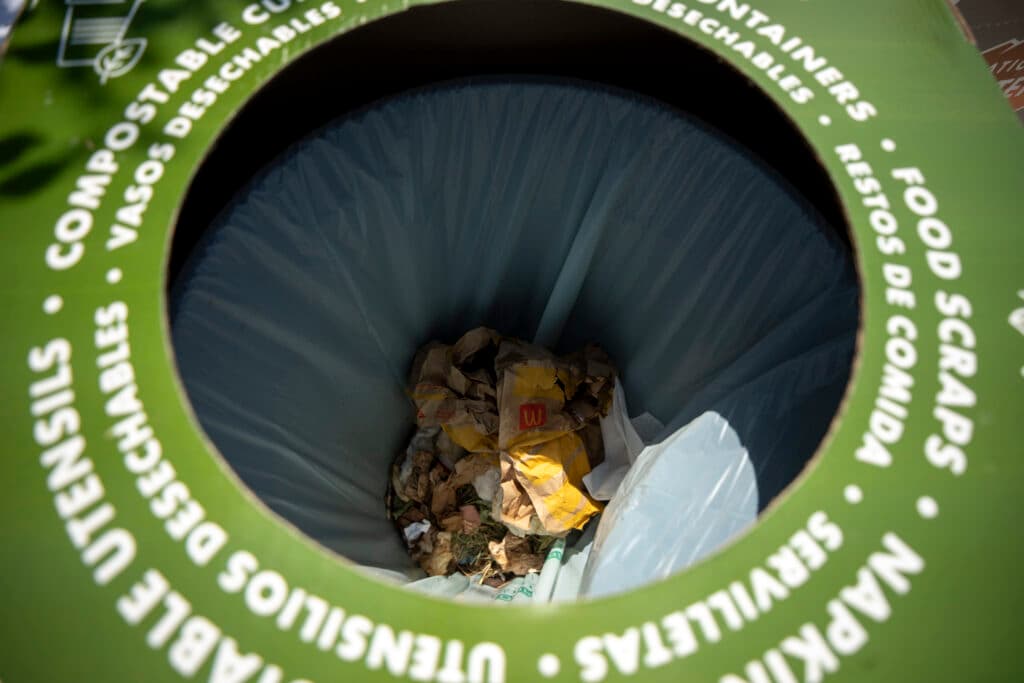
Denver is going to need more people like Cory Jones.
In theory, composting is simple.
Organic material, like food scraps and lawn clippings, is collected and placed in environments that allow bacteria, fungi and worms to efficiently break it down into fertilizer. But that mix of materials needs to be free of contamination, like plastic or glass, especially since the final product is meant to go back into local gardens.
“Contamination is an industrywide challenge, certainly a regional challenge. All processors deal with this,” said Nina Waysdorf, waste diversion manager for Denver’s Department of Transportation and Infrastructure. “Compost is a very sensitive waste stream.”
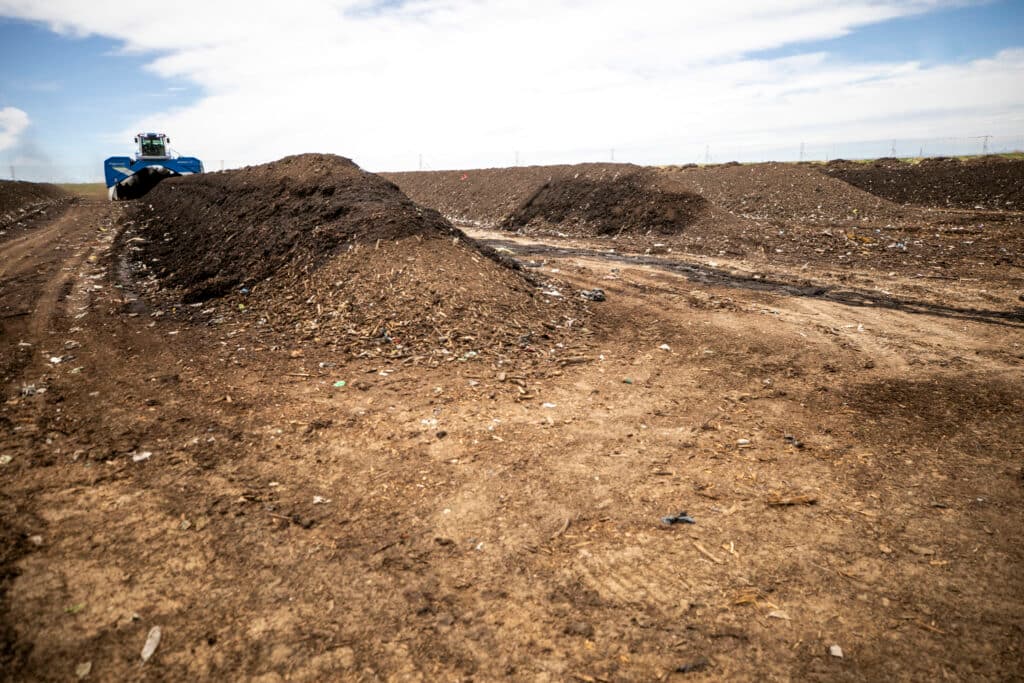
Her office runs the city’s residential program, which is optional and provides the green, wheeled bins to homeowners. Yard and kitchen waste from that program goes to a Denver-owned dump in Arapahoe County. Waste Management, which runs the site, can reject entire truckloads of material if it contains too much non-organic waste. Those piles of garbage would go back to the landfill instead.
Fortunately, Waste Management’s Dan Swingle said he hasn’t had to turn away a single load in the year since Denver contracted his company for composting.
“I think part of why it was so successful is the people that were doing it wanted to do it,” he said. “They didn't just make everybody do it and say, ‘Hey, you're composting now!’”
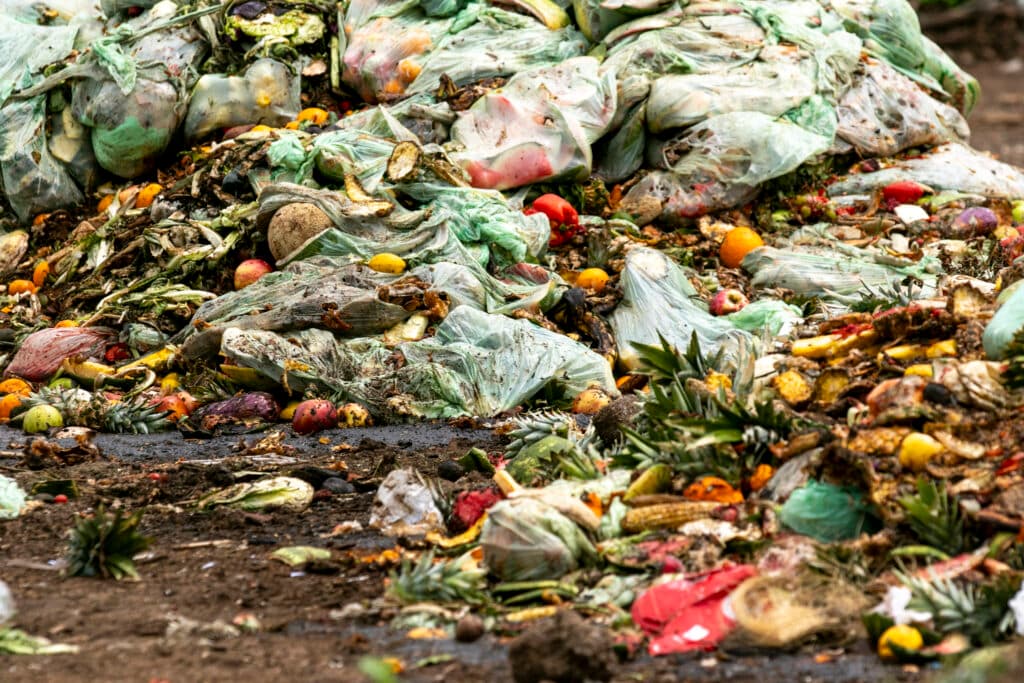
But the city’s new requirements will force businesses, event planners and landlords to participate.
They’ll have to create new systems to sort garbage from organic waste and ensure output is relatively pure. The ordinance gives officials power to enforce the new rules, possibly with suspended operating licenses, though the city says it leans towards “education” on these matters before crackdowns.
Hitting those requirements will take work, Jones has learned, especially for businesses with public-facing compost bins. It can be hard to ensure crowds at street fairs like his sort things correctly.
“It's not as quick as just tossing it into a thing. And I think a lot of people would like to just go that route. They see a receptacle, toss it in, not their problem anymore,” he said.
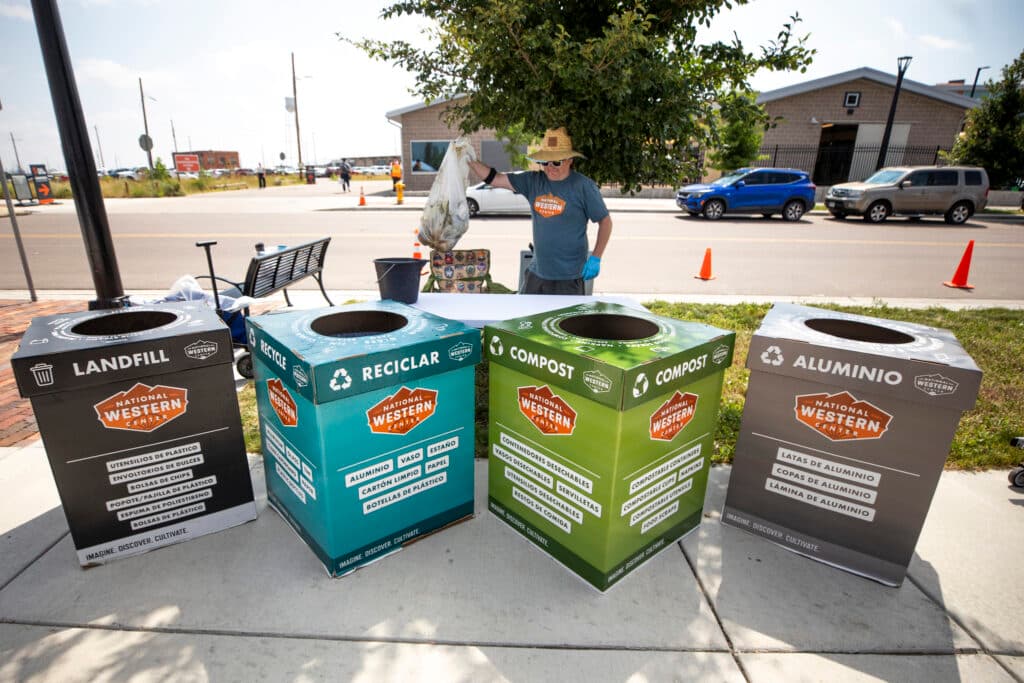
That’s part of why local businesses, officials and industry groups are concerned about the new requirements.
City Council member Amanda Sandoval was skeptical, at best, when advocates and the mayor’s office presented their recommendations for composting requirements to a committee last month.
Her family has run La Casita on Denver’s Northside since the 1970s. Business owners in the neighborhood, she said, are already struggling.
“With all of the food costs that are going up, all of the equipment costs that are going up, all of the hauling costs that are going up, the fluctuation in prices of tomatoes, the fluctuation in prices in avocados,” she said, “they feel like these proposals could negatively impact them and that they're hanging on by a thread.”
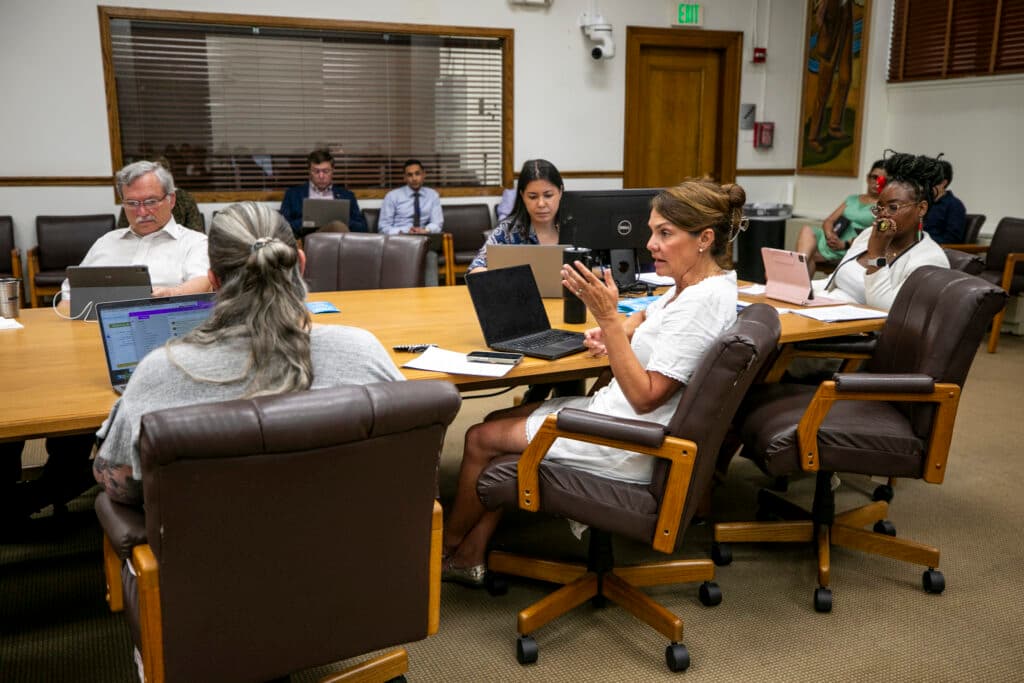
The Colorado Restaurant Association has been raising similar issues for months.
“We’re concerned about the availability of service providers and the administrative burden and cost to Denver businesses of all sizes, who are already stretched beyond belief,” spokesperson Denise Mickelsen wrote in a statement. “Even modest new requirements can become the tipping point that make an otherwise viable small business financially unsustainable.”
Eric Raya Steinbeiss, who runs the weekly Civic Center Eats food truck rally, said his organization rolled out compost bins in the last few years to get ahead of the new requirements. They’ve made room in their budget to hire two people for each event who, like Jones, separate organic material from recyclables and garbage.
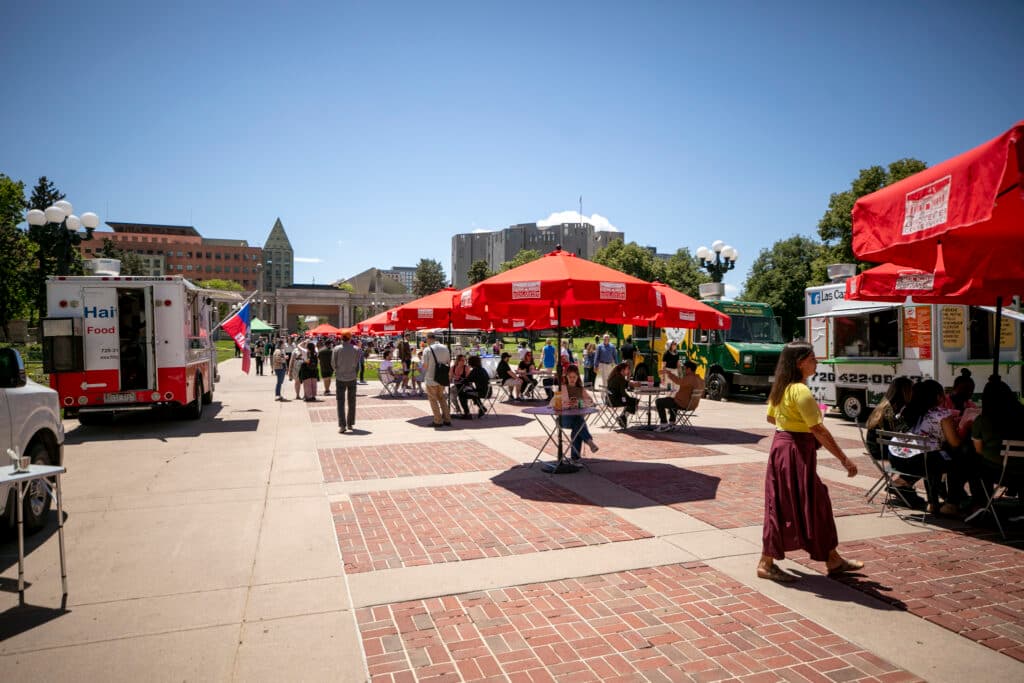
It’s an additional expense, he said, adding that those two helpers can’t do all of the work on their own. The project has only been feasible because Raya Steinbeiss can tap existing infrastructure at the nearby McNichols building.
While Raya Steinbeiss said he was happy to research the process and shell out some money to make it work, he worries others will have a harder time. The city has imposed other new requirements on outdoor gatherings, like more security and parking plans, that have threatened longstanding events like the South Broadway Halloween parade and Santa Fe Drive’s annual First Friday street closure.
“To add yet another requirement and expectation would make it so that we would lose a lot of especially smaller events. That would take away from the cultural richness of these events that make our city great,” he said. “We want to be the good balance of the city and what Denverites want, while also being thoughtful and considerate of the needs of these small businesses.”
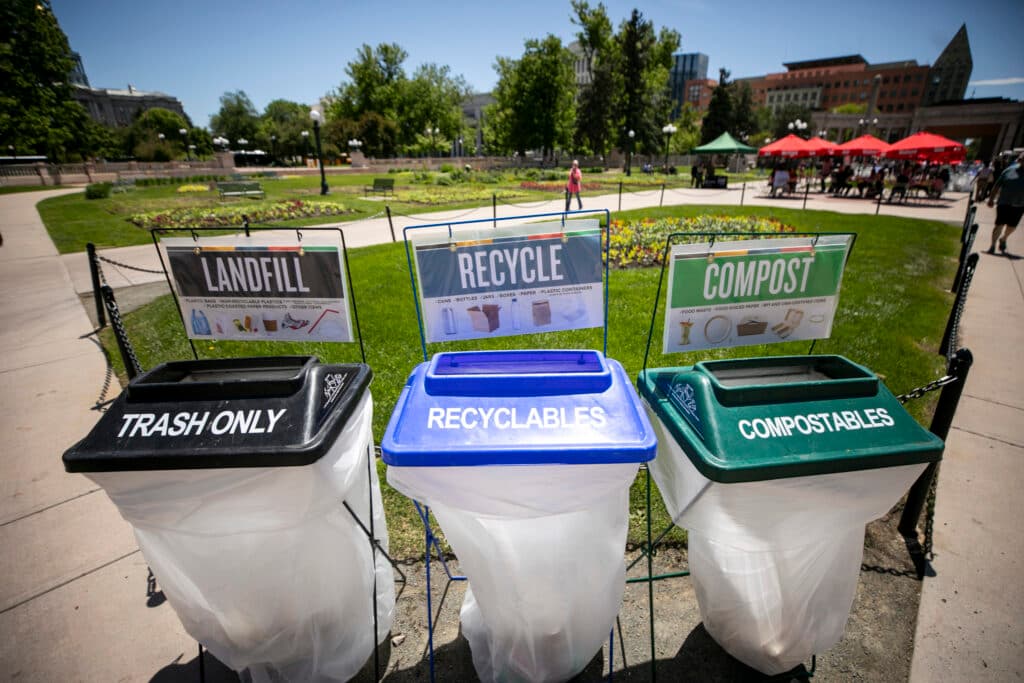
The mayor’s office is trying to strike a balance.
The original ballot measure that began this process was led by Ean Tafoya, an environmental advocate who was also behind a “green roof” ordinance that passed in 2017.
The green roof measure required property owners to plant gardens on some buildings’ roofs. But then-mayor Michael Hancock said the change went “too far” and, just a year later, City Council rewrote the law as a multi-option sustainability checklist. Advocates like Tafoya said the changes subverted the purpose of the original law.
Now, the composting measure is going through similar adjustments.
Since January, Mayor Johnston’s administration has been convening discussions about how to change and finally activate Waste No More. Tafoya and his colleagues have been included as members of an official policy committee, but they worry the measure will still be rolled back. He said he's seen parallels to the 2017 initiative, especially as business groups have lobbied for exemptions to new compost rules.
“What feels very similar is some sort of industry group who can say ‘yes’ on paper, ‘yes’ to consensus, and then backroom deal to try to get the mayor to make a different point,” Tafoya told us in May.
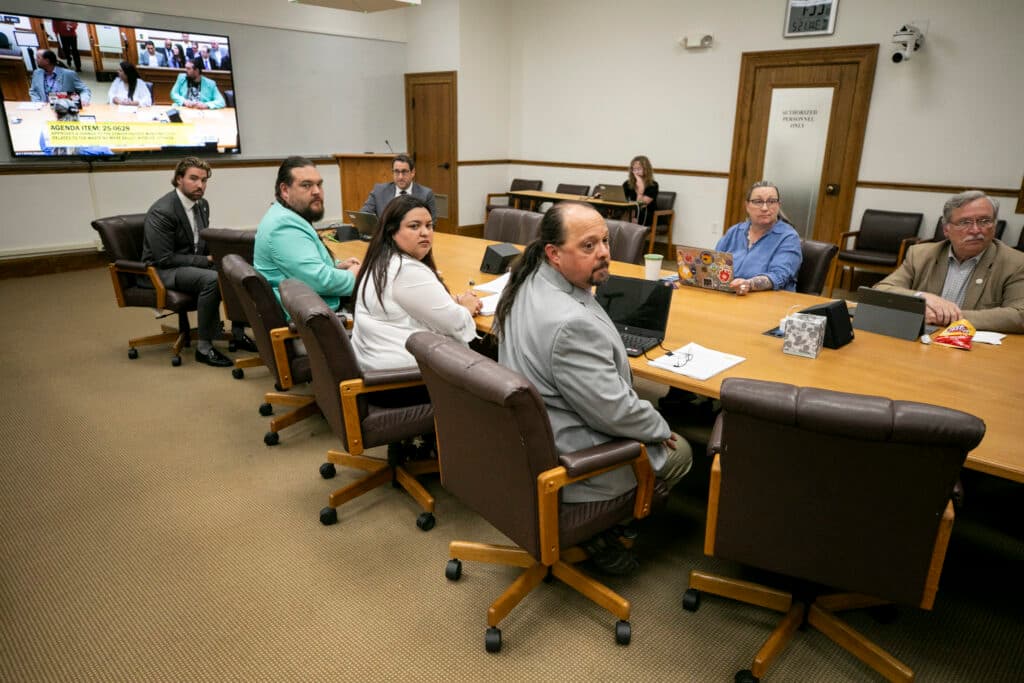
Tafoya said he’s sympathetic to small businesses’ concerns. Waste No More’s original language would have required most all businesses that handle food to participate, but it did allow for exclusions based on economic hardship.
The version that City Council will consider is more lenient, and includes exemptions that cover an estimated 70 percent of events and 16 percent of restaurants. Denise Mickelsen, with the Colorado Restaurant Association, said her group was “grateful” for the change.
Tim Hoffman, Mayor Johnston’s policy director, said the rewritten Waste No More would still save a lot of waste from the landfill.
“For us, it's a sea change in how we compost and recycle in the city and would be transformative,” he told us.
Brian Loma, Tafoya’s colleague on the policy committee, said his camp disagrees. He’s lobbying council members to raise amendments that would restore some of the original language.
“There should not be any necessity to say that any business should be exempt in looking at how they manage their waste and see what they can do to reduce it,” he said. “I mean, we’re in a climate emergency.”
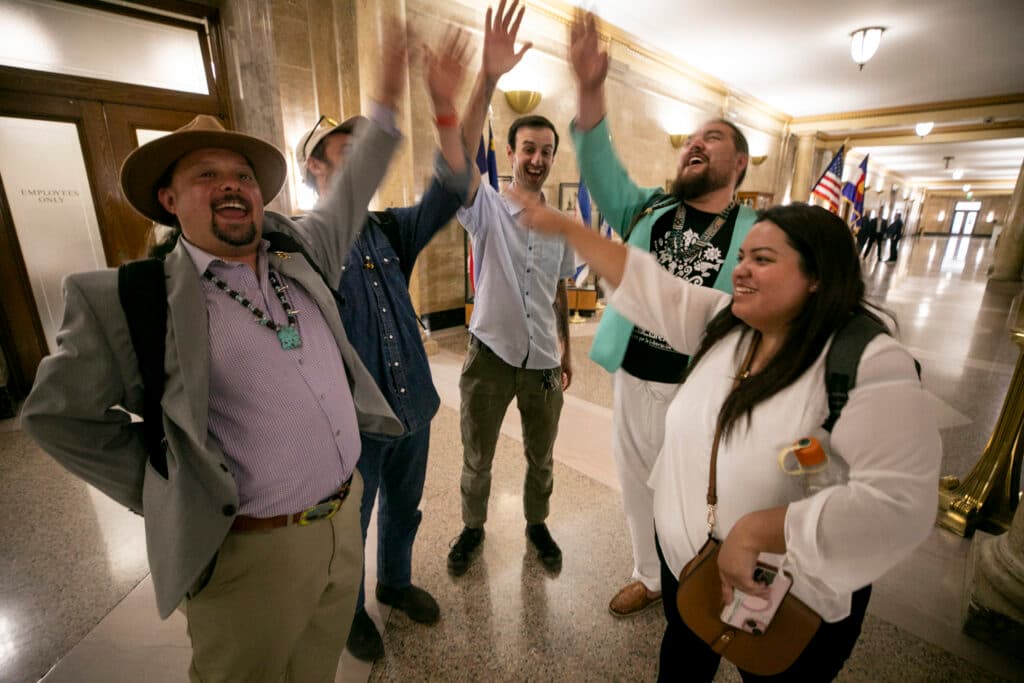
Is Denver actually ready for composting?
Expanding composting will require more than just hiring people like Cory Jones. There’s also the question of whether businesses will be able to find outlets for all those eggshells and banana peels.
If that capacity isn’t available, it could put a major drag on the new composting effort. The proposed new version of Waste No More offers exemptions for organizations that can’t find processors or haulers. Layoffs of city workers means Denver might also struggle to keep tabs on the new system.
Tom Dodd, operations director for the Arvada-based Scraps compost hauler, said the state’s patchwork of facilities has been growing and should be able to handle the shifting capacity.
But Compost Colorado founder Vann Fussell said this growing industry still needs support from the city. As a member of Waste No More’s policy committee, he advocated for subsidies to stand up new haulers and processors, like the operation he recently built in Elyria Swansea.
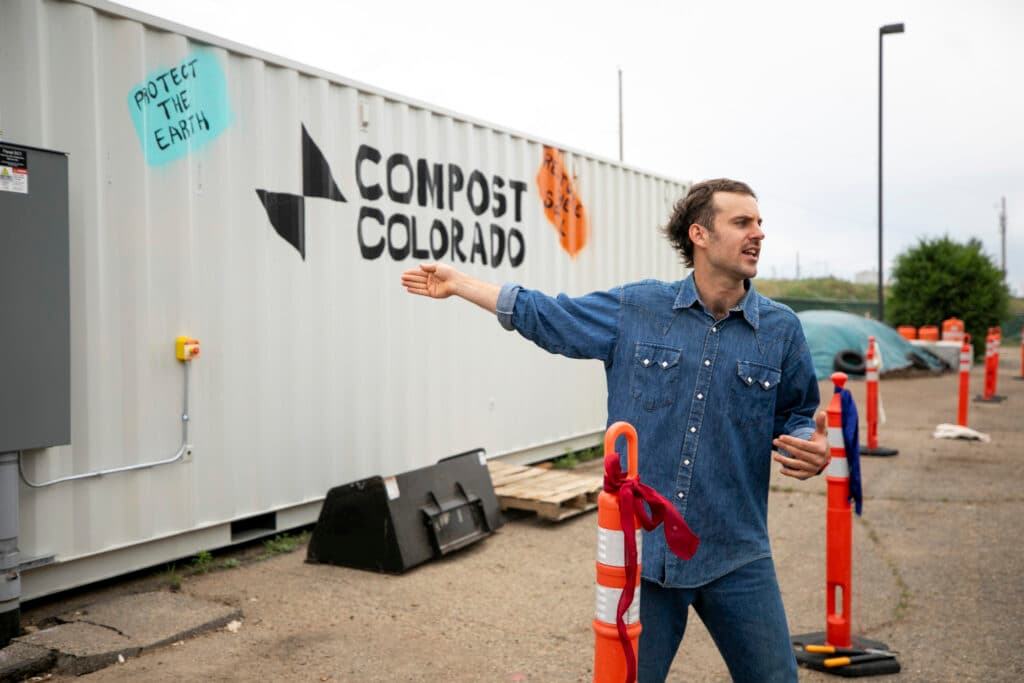
Compost Colorado founder Vann Fussell shows off his organization's new processing center in Elyria Swansea. June 25, 2025. Kevin J. Beaty/Denverite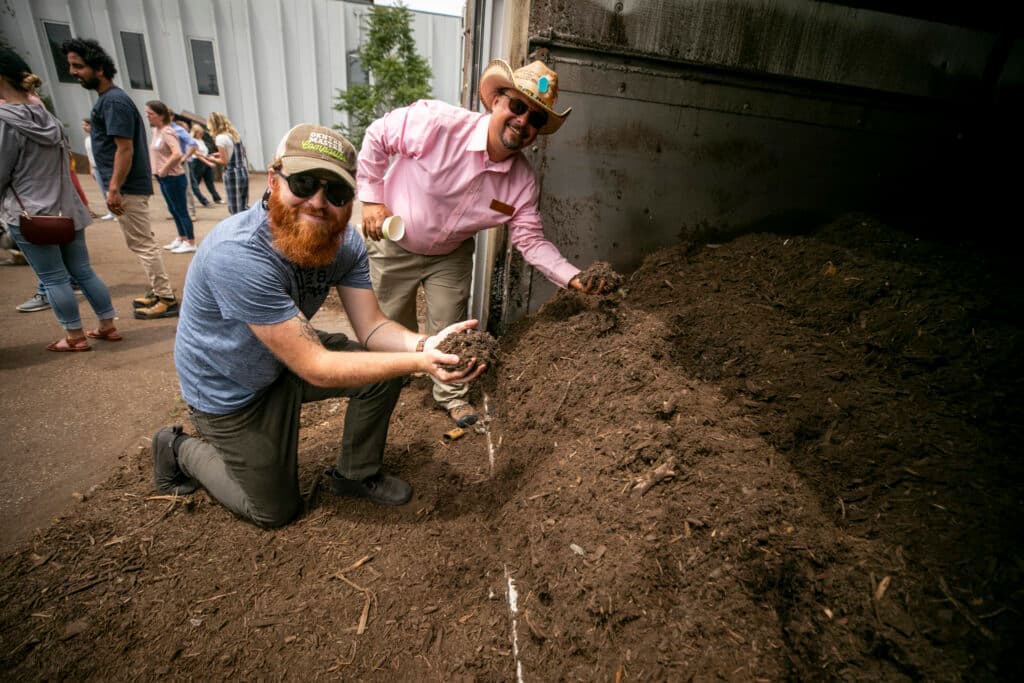
Ryan Call (left) and Brian Loma dig into a pile of still-decomposing material at Compost Colorado's new processing center in Elyria Swansea. June 25, 2025. Kevin J. Beaty/Denverite
“I think that we actually advocate for a much more distributed infrastructure paradigm, one where there's not just a few compost processing facilities, but there are many compost processing facilities across the city, and I think we're inching towards that,” he said. “We're going to continue to see increased processing capacity as this ordinance gets implemented.”
Back at the National Western Center, Cory Jones said he currently sends all of his compostables to Fussell's Compost Colorado facility down the road. But he’s also seeking state dollars for his own “digester,” as much as $750,000, which would allow National Western Center to handle much of its own organic waste.
Someday, Jones said, the NWC will be a fine-tuned composting empire. But for now, he and many others around Denver are still figuring out exactly where their compost should go.
As we spoke, a woman approached with a coffee cup. Her barista had said it was fully compostable. Jones wasn’t so sure. They spent five minutes inspecting it together, then they finally decided it was “just regular trash.”
Alas.
But Jones said he was happy to work out these kinks in a new system. He expects more people, soon, might benefit from his experience.

